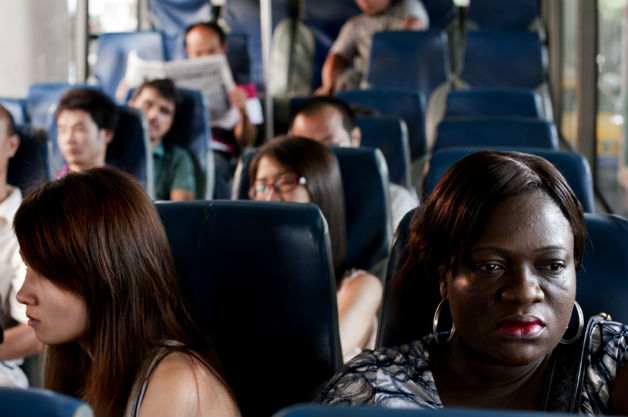"‘We don’t want somebody from Africa,' they told me."
May 12 If China wants to become the destination of choice for skilled professionals, it has to end prejudice against people from other countries and ethnicities, writes Leigh-Ann Worrell, 24, a Commonwealth Correspondent from Barbados currently studying in Beijing.
If China wants to become the destination of choice for skilled professionals, it has to end prejudice against people from other countries and ethnicities, writes Leigh-Ann Worrell, 24, a Commonwealth Correspondent from Barbados currently studying in Beijing.
Living in Beijing is certainly an experience like none other. It is, in my opinion, one of the few places in the world where you can truly meet people from all corners of the globe, each trying to make it in various ventures.
Even though many Chinese are warm and welcoming, bright smiles and friendly gestures can be fewer and further between when you are black.
Let me be clear, I am not brandishing the “r” word as an accurate description for all Chinese, as some of them are quite open-minded and willing to interact with people of any race.
However, at some point, people who are black and living in China have to actively deal with discrimination, whether it be in intimate relationships, making friends, looking for jobs, and doing business – and arguably less so than those of different racial groups.
It is my contention that if China truly wants to open up its doors and be a place where people will want to live and work, it has to take a strong look at how the people on the ground treat people from other countries and ethnicities. If not, it can impede trade relations and have negative implications on how people view it’s openness, diversity and acceptance of others.
This month, I will share some of the experiences of Africans living in the first-tier cities of Guangzhou, Guangdong province, and the nation’s capital, Beijing, offering a snapshot of what it is like to make a life as a black person in China.
Donald, aged 35
“I thought it was a nice place. Along the line I found a company who I was doing business with, and I decide to settle down here and live here and find a wife here. That is why I decide to come to China. First I come for business, but along the line, I find other things that made me decide to live in China. But in Guangzhou, you meet a lot of pressure. Sometimes you feel so bad, like when they come around and embarrass you asking about documents. Now, they can just harass you, and then they find out everything is in order.”
Larry, aged 30
“Many [Chinese] think that because you are black you are in poverty, it is war and it is famine. And that you are living in the forest (laughs). Related to black people, Chinese prefer to have proof… There are really few open-minded Chinese. Maybe it is because of the media – all they see is Somalia, Ethiopia, somewhere in Sudan, and you see the children dying of famine, and they just correlate directly to that.
“It is also hard to get a job sometimes. We had our first interview by phone and they said I was okay and they said that it was okay, I can come. When I got there, they discovered I am a black and they told me that… ‘we don’t want somebody from Africa’. This one I think it is really racism and ignorance, because I was saying ignorant because it is not your external appearance that will represent what you have as your teaching abilities.”
Denny, aged 28
“There was a Chinese girl who worked in the shop next to me, and I would ask her to come and eat lunch with me as a friend, but she saw this as a sign that I was in love with her… Anyway, the other Chinese in the shops close to ours saw that she was in love with me and asked her what was wrong with her, and why was she in love with a ‘black monkey’. She told me this.
“My colour is not a problem for me. When [Chinese] talk about my colour, I don’t care, ‘cause I like my color; you are the one who does not like my colour and are talking about my colour. I don’t care about your colour, so [Chinese] are the one with the problem, not me.”
…………………………………………………………………………………………………………………
About me:
“I am a reporter for www.barbadostoday.bb. I am passionate about women’s rights issues, theatre arts and cats. I like hanging out with my friends, live for the beach and (sorta) enjoy cooking. I eventually to work in the gender and development field in any part of the world.”
…………………………………………………………………………………………………………………
Opinions expressed in this article are those of the author and do not necessarily represent the views of the Commonwealth Youth Programme. Articles are published in a spirit of dialogue, respect and understanding. If you disagree, why not submit a response?
To learn more about becoming a Commonwealth Correspondent please visit: http://www.yourcommonwealth.org/submit-articles/commonwealthcorrespondents/
…………………………………………………………………………………………………………………




